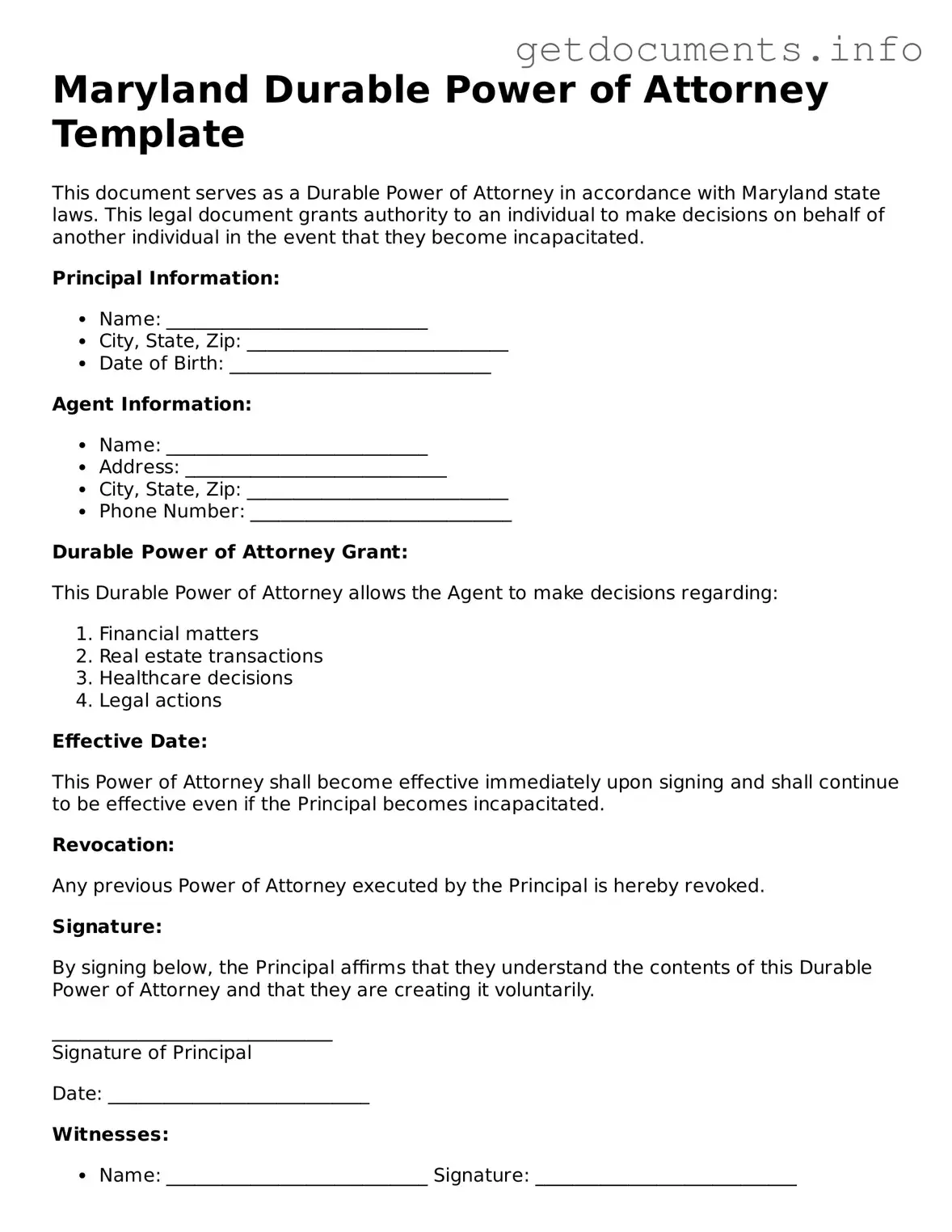Free Durable Power of Attorney Template for Maryland
A Maryland Durable Power of Attorney form is a legal document that allows you to appoint someone to make decisions on your behalf when you are unable to do so. This form ensures that your financial and legal matters are handled according to your wishes, even if you become incapacitated. Understanding its importance can provide peace of mind for you and your loved ones.
Take control of your future today by filling out the form. Click the button below to get started!
Access Durable Power of Attorney Editor

Free Durable Power of Attorney Template for Maryland
Access Durable Power of Attorney Editor
Got places to be? Complete the form fast
Fill out Durable Power of Attorney online and avoid printing or scanning.
Access Durable Power of Attorney Editor
or
⇩ PDF File
